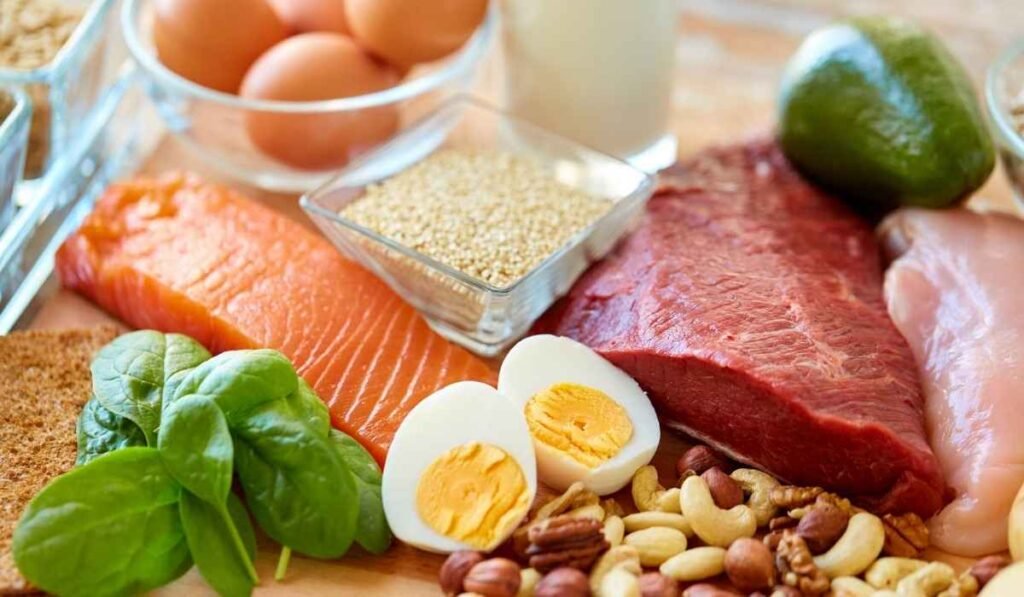Losing weight with PCOS and endometriosis can be a bit challenging, but it’s possible with the right approach. The main factor in losing weight with such conditions is a balanced diet that focuses on anti-inflammatory foods, less-carb meals, and healthy fats. Regular exercise is also equally important in losing weight. Let’s discuss how to lose weight with PCOS and endometriosis in detail.
What is PCOS & Endometriosis?
PCOS stands for Polycystic Ovary Syndrome. It is one of the most common hormonal conditions that affect women of reproductive age. In this condition ovaries (a pair of glands in the female reproductive system that produce eggs and hormones) don’t work as they should, and this results in hormone imbalances. This hormonal imbalance further leads to irregular periods, weight gain, and fertility problems.
On the other hand, Endometriosis is the condition in which tissue similar to the lining of the uterus (called the endometrium) grows outside the uterus. Normally, this tissue grows inside the uterus, but in endometriosis, it appears in places like the ovaries, fallopian tubes, outside of the uterus, and other areas in the abdomen.
This tissue acts like it would during your menstrual cycle; it thickens, breaks down, and bleeds. But since it’s outside the uterus, the blood and tissue can’t leave the body. This causes problems like:
- Pain (especially during periods or sex)
- Swelling and inflammation
- Scar tissue (called adhesions) that can stick organs together
How to Lose Weight with PCOS and Endometriosis:
Both PCOS and endometriosis affect your body in ways that can make weight loss harder. Keep in mind that it is harder but you can lose weight so don’t worry. Let’s look at some factors that greatly help in weight lose with PCOS & Endometriosis.
1. The Balanced Diet:
The anti-inflammatory and low-glycemic foods can help to deal with both PCOS and endometriosis symptoms.
What to Eat:
- Low-carb meals are very helpful for weight loss because they help in controlling blood sugar and insulin levels. And less carbohydrate consumption also increases fat-burning rate. Low-carb meals also reduce A1C which indicates low blood sugar levels and prevents diabetes-related complications.
- Healthy fats such as Avocado, nuts, seeds, and olive oil help in balancing hormones.
- Lean proteins; Chicken, fish, tofu, and legumes promote satiety and muscle health.
- High-fiber foods like beans, lentils, flaxseeds, and chia seeds improve digestion and reduce bloating. Chia seeds and flax seeds are also rich in Omega-3 fatty acids. And according to research, people who include omega-3 fatty acids in their diet are less likely to be diagnosed with Endometriosis.
- Gluten-free diet, as gluten is inflammatory not for everyone, but according to research 75% of endometriosis patients can see improvements faster if they consume a gluten-free diet.
- Whole grains like oats, wild rice, and quinoa are rich in fiber and protein.
- Anti – Inflammatory Fruits and vegetables like berries, grapefruits, lemons, broccoli, cauliflower, spinach, and kale are rich in antioxidants and reduce inflammation.

What to avoid:
- Sugary Foods and Drinks
- Pastries & Baked Items
- Fast Food
- Frozen Meal
- Excessive intake of caffeine
- Beer, Wine, and Spirits
Also Read: How to Get Rid Of PCOS Belly?
2. Manage your stress:
Stress management plays a very important role in weight loss for individuals with PCOS and endometriosis because stress directly impacts hormone levels, inflammation, and overall health.
Stress increases cortisol hormone which can lead to weight gain, particularly around the abdomen, and worsen insulin resistance, a common issue in PCOS.
Stress contributes to systemic inflammation, which exacerbates the endometriosis symptoms and makes weight loss harder.
Activities like meditation, deep breathing exercises, and yoga can lower cortisol levels and improve mental health. Research shows that yoga can be particularly beneficial for managing PCOS symptoms.
Spend your time on your favorite hobby that makes you feel happier.
Sometimes, our surroundings can be very depressing or chaotic. In such situations, traveling to northern areas can help reduce stress. However, make sure to pay close attention to your diet during your travels.

3. Do Gentle Exercises:
Make exercise a part of your daily routine. Regular physical activity can help improve insulin sensitivity. This doesn’t necessarily mean intense weightlifting; you should choose exercises that suit your fitness level. Cardiovascular activities, such as walking, jogging, cycling, and swimming, are excellent for heart health and overall well-being.
4. Sleep Early:
Sleep early. Studies show that people who sleep late at night tend to have a big tummy. If people don’t go to sleep early at night, cortisol gets released into their bodies due to disruptions in the circadian rhythm. And you may notice that if you stay up late, you tend to crave more food, which can lead to overeating. This ultimately results in weight gain.
Also make sure to turn off all screens, such as your phone or TV, at least one hour before bedtime.
5. Must Drink Min 7-8 Glass Water Daily:
Hydration is a key to losing weight. Must drink 7-8 glasses of water daily. And it also helps in the detoxification of your body through urination.

Frequently Asked Questions:
Can someone have both PCOS and endometriosis?
Yes, someone can have both PCOS and endometriosis at the same time. One condition doesn’t cause the other, but their symptoms can overlap and might be the reason behind issues like infertility or pain.
What is the best diet for endometriosis & PCOS?
A balanced, anti-inflammatory diet can help to manage both PCOS and endometriosis. Studies suggest that eating more fiber-rich vegetables & fruits, and whole grains reduces inflammation and hormone imbalance. For example, omega-3 fatty acids (found in fish like salmon) have been shown to lower pain and inflammation linked to endometriosis. Meanwhile, cutting down on sugar and refined carbs can improve insulin resistance, which affects up to 70% of women with PCOS. A diet rich in fiber, healthy fats, and lean proteins is very helpful for managing symptoms of both conditions.
What drink is good for endometriosis?
Green tea is good for endometriosis as it contains EGCG, a catechin that can reduce inflammation. Turmeric tea is also best for endometriosis which contains curcumin, a compound that may reduce endometriosis pain.

